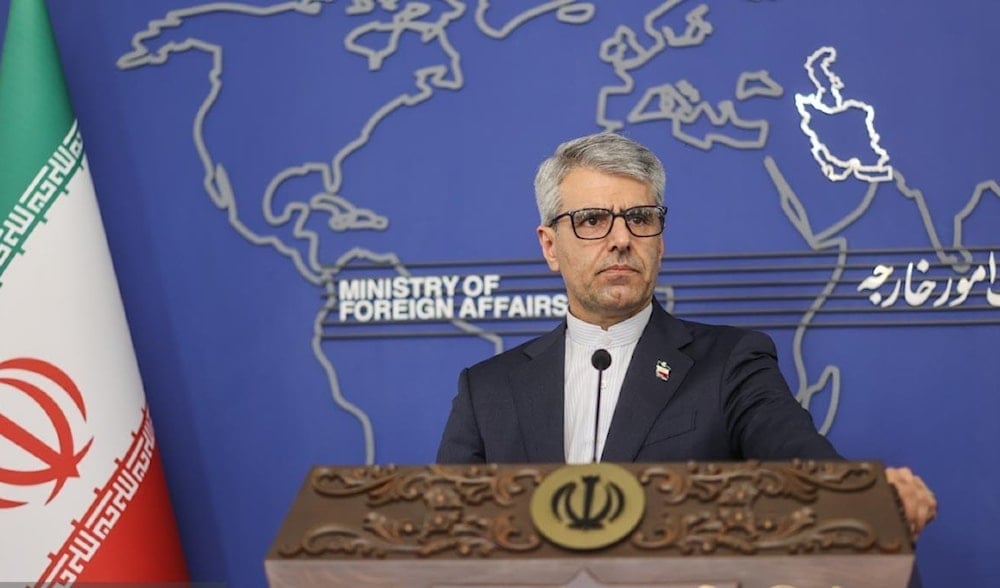Iran clarifies stance as Res. 2231 expires, says nuclear rights intact
Tehran has reaffirmed its legal nuclear rights following the expiration of UN Security Council Resolution 2231.
-

Iranian Foreign Ministry spokesperson Esmaeil Baghaei at a press conference, on October 17, 2025 (WANA news agency)
Iranian Foreign Ministry spokesperson Esmaeil Baghaei affirmed on Monday that UN Security Council Resolution 2231 has "formally ended as of October 18," in full accordance with its explicit text.
He explained that while the resolution's time-bound restrictions have expired, "some of the rights it granted to Iran, including recognition of its enrichment program and related activities, remain intact," a reminder that Iran's peaceful nuclear achievements retain international legitimacy.
Baghaei reiterated that the 2015 nuclear agreement, the Joint Comprehensive Plan of Action (JCPOA), was a "temporary understanding" under which Western parties pledged to lift "unlawful sanctions" targeting Iran's civilian nuclear program, while Tehran voluntarily implemented transparency and confidence-building measures.
He noted that Iran upheld its commitments long after Washington unilaterally abandoned the deal in 2018, with fifteen IAEA reports up to 2019 confirming Tehran's full compliance.
Despite this record, Europe's so-called E3 powers, namely Britain, France, and Germany, moved on August 28 to invoke the JCPOA's "snapback" clause, an act Tehran, Moscow, and Beijing have condemned as baseless and politically motivated.
In a joint letter to UN Secretary-General Antonio Guterres, the three nations accused Europe of exceeding its authority and violating both the spirit and procedure of the JCPOA.
Iranian Foreign Minister Abbas Araghchi confirmed in a separate communication that Resolution 2231 "has expired and fully ceased to be in effect," stressing that any attempt to "revive or reimpose expired resolutions is null and void." He added that no UN member state is obliged to recognize measures that contravene international law or the UN Charter.
Tehran strengthens alliances
As Western capitals escalate pressure, Tehran is strengthening partnerships with Russia, China, and members of the Non-Aligned Movement (NAM) to counter what it views as illegal coercion. Araghchi said that the three countries are coordinating "to neutralize the European Union's unilateral actions" and to preserve genuine multilateralism.
The NAM's Kampala communiqué echoed that stance, affirming that Resolution 2231 remains valid in principle and that the October 18 deadline for lifting all nuclear-related restrictions must be respected.
Domestically, Deputy Foreign Minister Hamid Ghanbari announced that Iran has adopted an "active economic response" to blunt the effects of Western sanctions, noting that "if the domestic economy is strong, Iran will have the upper hand at the negotiating table."
Tehran's new strategy focuses on reinforcing trade networks, diversifying partnerships, and shielding livelihoods from external pressure.
Read more: Araghchi: Iran committed to diplomacy despite Western escalation

 3 Min Read
3 Min Read








